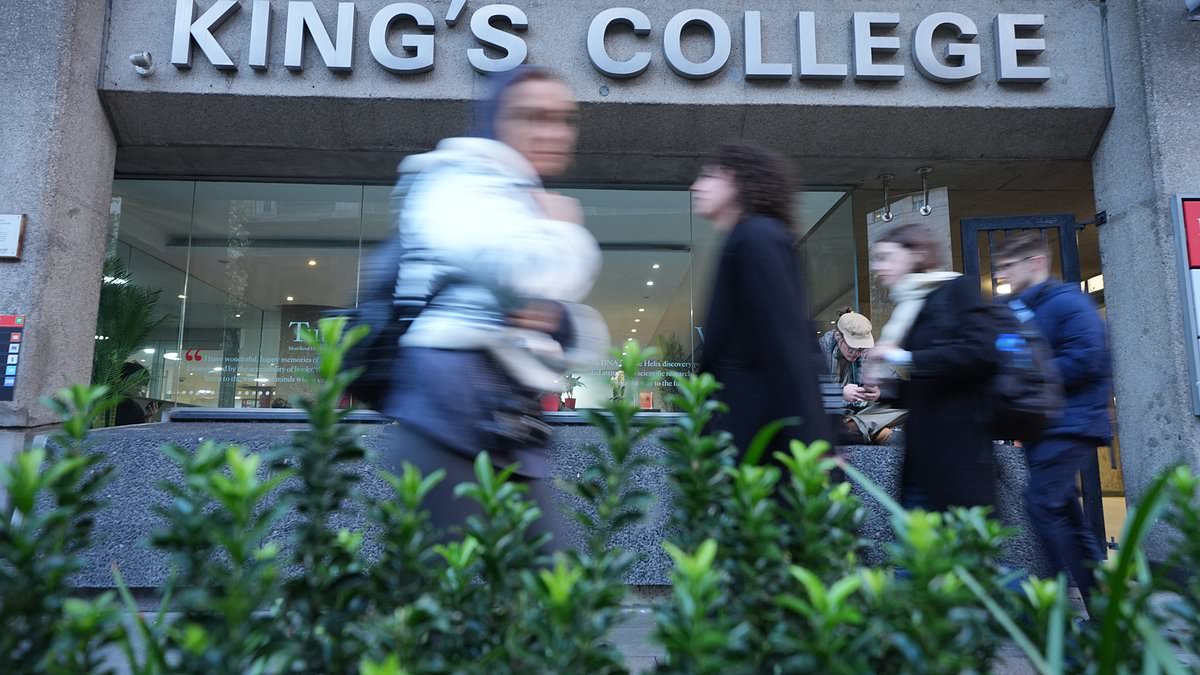Students face paying hundreds of pounds more a year after Sir Keir Starmer broke another promise yesterday.
In a fresh attack on the middle classes, the Government announced that university tuition fees will rise to more than £9,500.
The first hike in eight years will help universities facing ‘severe financial challenges’, Labour insisted. But it flies in the face of Sir Keir’s promise to abolish tuition fees when he was campaigning to be party leader in 2020.
And it is the latest salvo in Labour’s ‘class war’ against middle Britain – after the Government dropped a £40 billion tax bomb on businesses, private schools and farmers.
Education Secretary Bridget Phillipson said increasing the £9,250 maximum tuition fees for domestic students to £9,535 next year had ‘not been an easy decision’.
But she claimed it was necessary to ‘secure the future of higher education’ amid fears of a financial crisis in the sector.
There was an immediate backlash from unions and MPs, who said students had been ‘shafted’.
Newly appointed Tory education spokesman Laura Trott accused Labour of breaking promises.
Sir Keir made abolishing tuition fees one of his ten pledges when he campaigned to be Labour leader, saying the party ‘must stand by its commitment to end the national scandal of spiralling student debt and abolish tuition fees’.
Ms Trott said: ‘With Keir Starmer elected to Labour leadership on a pledge to scrap tuition fees, no mention of the rise in the manifesto, and the Education Secretary saying in just July this year that Labour had no plans to raise fees, students can be forgiven for feeling betrayed.
‘This is another broken Labour promise to add to the long list.’
The move means the cost of a three-year degree will rise by £855 to £28,605, with the debt borrowed to cover this increasing with interest. The interest rate is currently linked to the Retail Price Index, at 4.3 per cent.
The other rules will remain in place – so graduates will repay 9 per cent of their earnings over £25,000 and any unpaid debts will be wiped after 40 years.
The University and College Union described the fee increase as ‘economically and morally wrong’.
General secretary Jo Grady said: ‘Taking more money from debt-ridden students and handing it to overpaid, under-performing vice-chancellors is ill-conceived and won’t come close to addressing the sector’s core issues. As Keir Starmer himself said last year, the current fees system doesn’t work for students and doesn’t work for universities.’
Tory MP Richard Holden said the Government had ‘shafted’ students, pensioners, farmers and workers. He added: ‘This looks like another attack on aspirational working and middle-class Britons, since only graduates who go on to work hard and earn more will be affected.’
Rob Tucker, of the British Medical Association, said it could discourage people from becoming doctors.
NUS vice-president Alex Stanley said forcing students to foot the bill ‘can only ever be a sticking plaster’, adding: ‘Universities cannot continue to be funded by an ever-increasing burden of debt on students.’
Tom Allingham of the campus advice website Save the Student, said: ‘An increase in tuition fees simply rubs salt into the wounds for students.
‘Although extra cash was needed to address successive freezes to fees, we had hoped this would be met by increasing the government grant rather than adding to student debt.’
The fee increase will come into effect from the 2025/26 academic year. The rise applies to students who have already started their course, as well as new starters.
Last night, the Department for Education would not rule out further fee rises, saying: ‘Longer-term funding plans for the higher education sector will be set out in due course.’
The Institute for Fiscal Studies said if the Government continued to increase fees in line with inflation each year, tuition fees could reach £10,680 in 2029/30.
University fees of £1,000 a year were introduced by the Labour government in 1998, going up to £3,000 in 2006. The coalition government tripled the amount to £9,000 in 2012.
